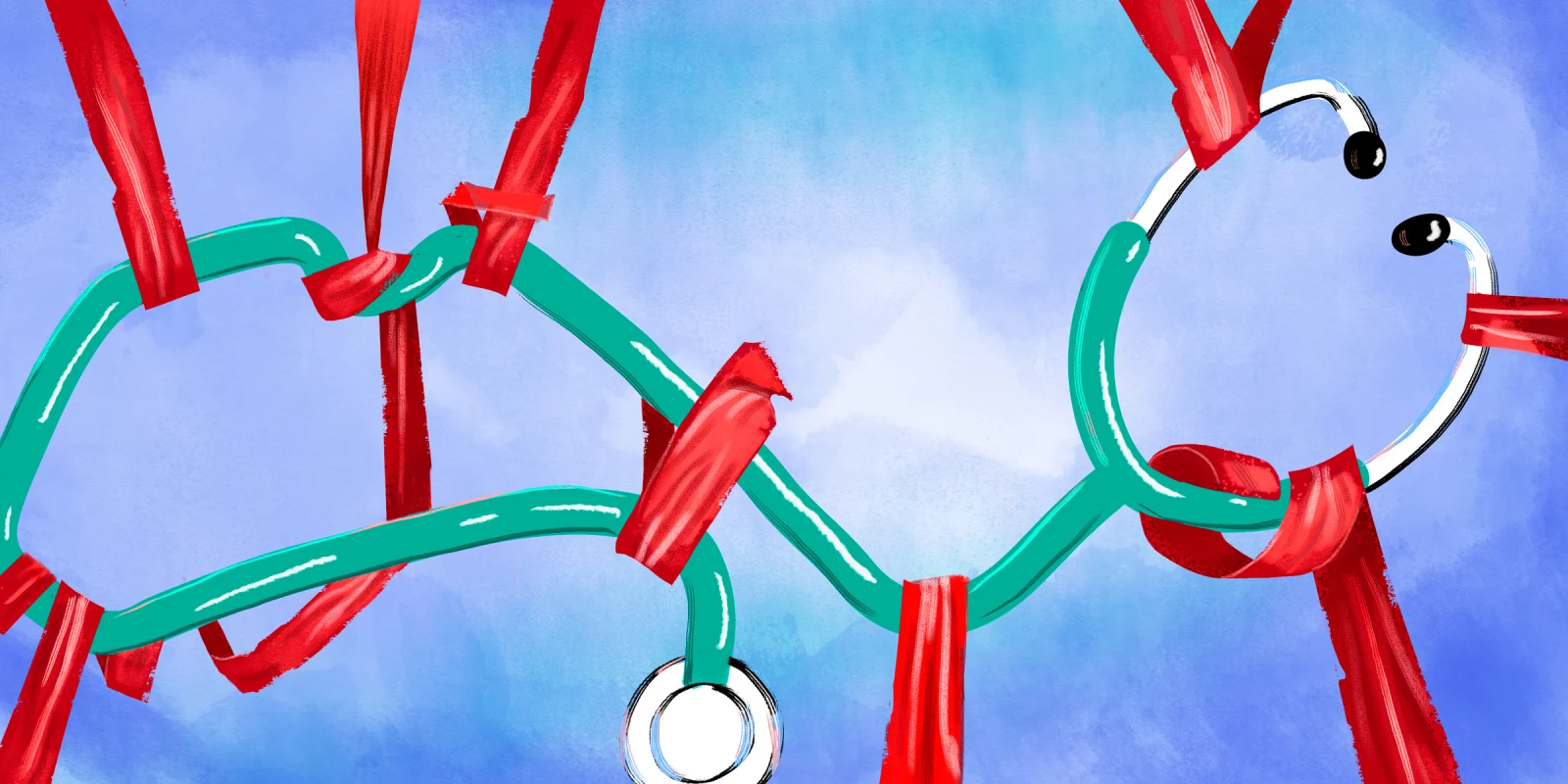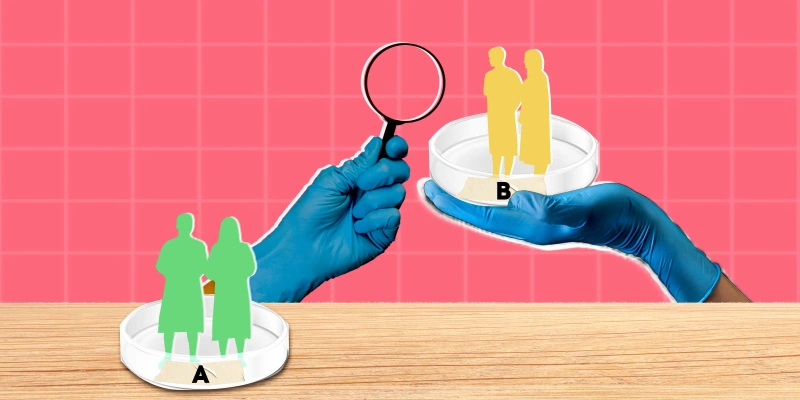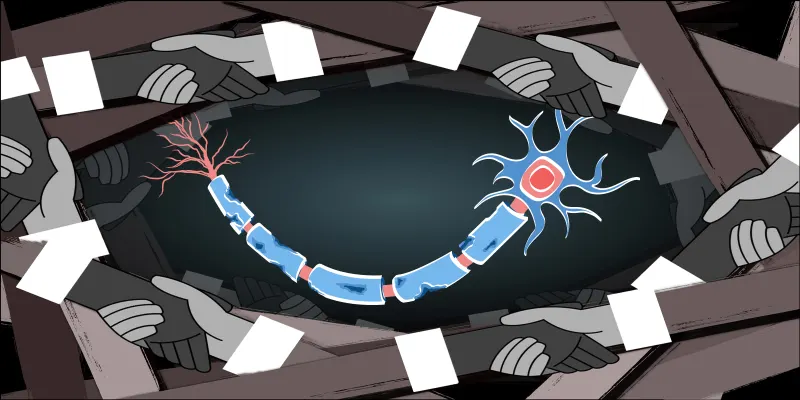Regardless of how long you have been in medicine or the role you play on the team, you know things aren’t the way they used to be. How did we get here?
We were trained that when we have questions, when we need some perspective or advice, we should go to our leaders for answers or guidance. “Leader” is a broad term and can mean a lot of things; in this case, the leader I suggest we turn to for answers is a non-medical professional. Steve Albini was a recording engineer who worked with a broad variety of musicians — but he was more than that, with an influence that was felt across a variety of media. He wrote a piece in the early 1990s about how he saw the state of the recording industry at that time. (Short version: exploiting the artists that the industry relied on.) The piece was a landmark editorial, and is still stinging in its accuracy to the music industry more than 30 years later. But what’s interesting about it, to me, is how relevant it is to the current state of health care.
It’s a long, biting critique, but I think we can learn the most from the third section, where he talks about bands getting signed to record labels. His thesis is that the bands almost universally end up with the short end of the stick: They have what the record labels want (pretty hard to sell records without an artist to make them), yet the system is rigged so strongly in favor of the record label that there is almost no way that the artist can come out ahead. Sound familiar? How many of us have signed contracts with non-compete clauses in our day? How many of us have agreed to a salary based on approximately 40 hours of work per week, only to find that the 40 or so hours is all appointment time with no allowance for the work done outside of the exam room? How many of us have formally accepted positions with patient panels of a certain size, visits of a certain length, only to have the rules changed once the contract was signed and we were actually working?
Albini talks about the contracts that artists sign — as artists, they may feel more comfortable having a lawyer review it. The lawyer does and reports that it’s pretty standard. (But does that mean it’s fair?) Did you have an attorney review your contract? Were you told that it was fair (it benefits you as much as the company that you are generating revenue for) or that it was standard (the same (good or bad) deal that most of your peers got)?
He goes on to talk about the cushy advance (sign on bonus) that the band gets. It sounds really good. Then you look a little more closely at how the overall pie is getting carved up. The lawyer has a fee for reviewing the contract, the manager gets a percentage for doing their job, the record company has built in reimbursement for manufacturing expenses, there is a line item for publicity expenses, the list goes on. When it gets to that bottom line, there is a much smaller dollar amount than there was when this started.
Have you ever compared what you bring in to your practice — as a clinician, you are a revenue generator, not an expense — with your compensation? Have you ever asked the decision makers about the difference? Did it go a little something like the record label equation we just discussed? Well, you’ve got to pay for the overhead — building, utilities, upgrades/maintenance; then you’ve got to pay for the staffing — you don’t want to be answering phones and rooming patients, do you?; then you’ve got to account for the fact that insurance doesn’t reimburse the full amount billed for, there is always an adjustment; then you have to pay for other salaries, like leadership … Once again, the list goes on. When it’s all said and done, the amount that goes to you is a small fraction of what you have earned for the company.
The piece goes on to do some realistic and sobering math. With an estimated profit of $710,000, the band splits the remaining profit after expenses and earns $4031.25 each. “The band … has made the music industry more than 3 million dollars richer, but is in the hole $14,000 on royalties. The band members have each earned about ⅓ as much as they would working at a 7-11, but they got to ride in a tour bus for a month.”
Albini is not known for mincing words, and thank god. It needed to be said about the music industry then, and it needs to be said about the health care industry now. At a time when the largest segment of our population is needing more and more from the health care system, the system is crumbling (bankruptcies, private equity, etc), and when the workforce is burnt out beyond recognition and retiring, changing positions, or walking away from the industry entirely, it’s about time we call it what it is. The system is not set up to serve the clinician, yet it is profoundly dependent upon us. A record company can’t make a dime without musicians making records. Health care can’t make a dime without clinicians billing for visits. And if we don’t take care of our clinicians and make changes to address systemic burnout and exploitation, how can the health care industry survive?
The music industry has evolved in the 30 years since Albini’s piece was written. Technology made it easier for artists to find their audiences and communicate with them directly; as a result, the role of (and need for) record labels has diminished, giving the artist greater control and autonomy.
Technology and changing attitudes offer similar opportunities for clinicians. Patients and clinicians are growing increasingly dissatisfied with the current model of health care delivery. Costs are increasing and value (however you choose to measure it) is decreasing. The time has come for a change, an option that eliminates (or at least minimizes) the middleman, an option that increases transparency and that allows clinicians to reach their patients more directly. Maybe that has the potential to shift the equation in favor of the most essential resource: clinicians.
What are some changes you'd make to the health care industry? Share in the comments.
Jessica Reeves is a nurse practitioner as interested in the well-being of her fellow clinicians as that of her patients — and she's on a mission to make the work world a better place to live. She writes, works, and lives in the town that holds the world record for most lit jack-o-lanterns (really). Follow her at jessicareeves.net. Jessica was a 2023–2024 Doximity Op-Med Fellow and continues as a 2024-2025 Doximity Op-Med Fellow.
Illustration by Jennifer Bogartz





